Interview With Zero's Scot Harden
In a changing world of motorcycling, the latest experienced hand to lend his talents to the fledgling electric motorcycle industry is off-road racing legend and longtime industry executive, Scot Harden.
Last week, Zero Motorcycles announced that as of Sept.1, Harden had become its vice president of global marketing. In doing so, he joins former top Buell engineer Abe Askenazi, who in February signed on as vice president of engineering, along with a growing pool of talented individuals working for the company.
In taking on the task of legitimizing and growing the currently 54-employee company based in Scotts Valley, Calif., Harden brings a perspective willing to candidly admit challenges, but he adamantly speaks in optimistic tones of opportunities that lie ahead.
No doubt his new employers hope his voice will be listened to, given his extensive resume and hard-won credibility. Having started racing for the Husqvarna factory team in 1973, Harden, 54, includes among his victories first-place finishes in the Baja 500 and 1000 three times each.
He also won a gold medal in the ISDE (International Six Days Enduro) event in Italy in 1981, and in other years he won silver and bronze medals. High placement or overall wins were also earned in international marathon raid rallies, including the Djerba 500 Rally, Roof of Africa Rally, Rally de Atlas-Morocco, and the Dakar Rally. Other accomplishments include many series championships, domestic desert race victories, and too many more two-wheeled achievements to list.
On the business side, from 1982-86, Harden was a Husqvarna regional sales manager and products manager. He started his own off-road adventure and racing school from 1987-present. And from 1988-93, he was western region sales manager for KTM America, Inc. He then became KTM’s national marketing director for 10 years. From 2004 onward he served as the Red Bull KTM USA Dakar team manager/rider. This overlapped his main KTM duties assumed from 2003 until a few weeks ago as its North American vice president of media relations.
In 2008 Harden was inducted into the AMA Hall of Fame on the first ballot for his off-road endurance racing exploits, and this summary barely does justice to his illustrious career.
To be sure, Zero is fortunate to have him, and in talking to the easy-going and likable Harden about the 37-year professional road he’s travelled, it would appear the feeling is mutual.
The timing may be right for him to keep moving from a place of strength, he says, as the powersports industry is in the midst of a shake-up such as it’s never seen, and electric motorcycles are poised to fill in some of the gaps.
“Our whole industry isn’t just being tweaked, it’s being reset right now,” Harden says.
Of threats particularly to off-road recreational riding and racing, he cites stringent environmentalist initiatives that are all but shutting it down in Europe, and in many parts of the U.S. as well.
“Look at the land usage in Southern California right now,” he says, “It’s going away in droves. There’s been more land closed in the first two years of the Obama administration than in the Clinton and Bush administrations combined.”
Harden says off-road riding is under attack on a level that it’s never faced before.
“They have extreme challenges facing them over the next five years as to whether they’re going to be viable. First of all there’s the retraction in the marketplace. There’s a lot less market available for these guys to sell to, therefore the volumes are coming way down. And so at some level, you know, when do the volumes fall too low at break-even level for the factory even to exist? That’s a real, real, real concern for KTM, for Husqvarna, and even for Honda at this stage.”
Speaking of Zero, Harden also readily discusses different obstacles confronting electric motorcycles, but these don’t include objections over environmental and noise pollution, and the aforementioned social and political winds of change are otherwise flowing in Zero’s favor.
His job, Harden says, is to recognize specific opportunities in this evolving paradigm, and capitalize on them in his overarching mission to expand Zero on a world scale.
Many of the sales Zero makes at this juncture could be described as between-the-cracks. But niche business is business, nonetheless, and it’s buying time until batteries with increased energy density come along.
A further kick start is coming from subsidies on the manufacturing side and consumer side.
Zero is sufficiently funded by the New York-based private equity firm, Invus, and eligible for other grants from a variety of sources that have incentive to see its eco-friendly products gain traction.
For its consumers, help toward getting them to buy its admittedly under-powered, low-range electric motorcycles, comes in part from a 10% federal tax credit. Various states offer additional consumer incentives netting as much as 25% off the final sales price, or more.
Some states offer no incentives however, and tough regulations in Texas have made that state particularly difficult to sell to. Off hand, Harden says he is unaware of any Zero sales into Texas.
As for who would buy Zeros, Harden says there are lots of people with unique needs, and more units would have been sold by now, but one of the biggest holdbacks Zero is working to remedy has been simply producing enough to satisfy back orders.
Included among electric streetbike buyers are short-range commuters, campus police departments, resorts, small parcel delivery services, and a host of other potential fleet sales. Likewise, Zero dirtbikes are being embraced by western Euros who’ve been demoralized by restrictions imposed by environmentalist concerns. American customers include a California winery, and suburban motocrossers everywhere who can tear it up within city limits faster than you can say “hot-swappable batteries.”
Think: You can build your own private motocross track in your back yard, and the neighbors will never call the cops. On the trail, Zero-riders have been known to get friendly waves from mountain bikers and horseback riders, and in some cases can go where traditional machines are considered anathema.
This said, the largest hurdle isn’t the jumps they try to clear, but the batteries that power them. However this won’t be a problem for very long, Harden predicts, as he’s seeing rapid advancements all the time.
For example, a person recently came into Zero’s offices and plopped batteries on the table that exceed the capabilities of its already state-of-the-art, in-house-produced lithium-ion powerpacks.
These, he said, were 60% smaller, 40% more powerful, and 60% the cost.
“I mean this is available right now compared to where we are,” Harden says, “You know, I see the power density issue, that’s going to be resolved here I think within the next 18 months to two years. I think we’ll have power densities that put us in the range where [we’ll have] 100-mile range [street] vehicles; its going to make it all possible.”
This said, when asked about naysayers who poke holes in the theory of an electric motorcycle future, Harden fully relates. Like some other Zero employees, he isn’t ready to give up his gas bikes either, but, he says, that’s not the point.
“So the naysayers, they’re right. I am that guy – I’m a naysayer. I’m the guy that looks at it and says ‘Man, I just can’t, it just doesn’t meet my needs,’” Harden says, “But I do know that it meets the needs of a sufficient number of people of specific applications enough there to build a business out of it so that we have time to wait for, wait for the technology to arrive, and that’s coming quickly to where we can get into a much broader scale.”
Part of that broader scale means expanding Zero’s production capabilities and distribution network.
Zero recently experimented with a batch of electric street and dirt bikes produced to its specifications in Taiwan. It was a flop.
“As a basis of that trial run, we’ve determined to focus all of our production here in Scotts Valley,” Harden says, “We weren’t happy with the quality, nor the ability to stick to a schedule. And we’ve had to invest a lot of money in rebuilding the bikes and refinishing the bikes.”
To help expand its domestic manufacturing, Zero recently received $1.84 million in matching funds grants – half from the California Energy Commission and the rest made up primarily by the City of Santa Cruz as well as the Monterey Bay Unified Air Pollution Control District.
This will go toward developing an electric powertrain assembly line. Presently, Zero imports its motors from vendors.
Harden is proud of Zero’s commitment to the U.S., and like a lot of Americans, would love to prove the country can remain competitive.
To really make this possible, the other necessary part of the equation, Harden says, will be distribution.
Zero is committed to its maverick idea of regionally placed Independent Representatives (IRs). The company markets its bikes online and works in conjunction with its contracted IRs to provide demo rides, answer questions, and locally assist Zero in selling and shipping its bikes via a secure web portal.
Presently, the company has about 102 IRs worldwide, with 72 being in the States, 10 in Canada, and the rest in Europe. As this is being written, Zero’s VP of Worldwide Sales, John Lloyd, is said to be in Europe signing up more IRs.
The company plans to double them worldwide in the next year, and Harden sees a formula that should appeal to dealers tired of being pinched by runaway costs, or anyone else who wants to sell motorcycles without a lot of overhead.
Being an IR does not preclude traditional brick and mortar dealerships, and many IRs offer other brands alongside Zeros. But IRs need not worry about stocking parts and accessories, or credit lines drying up. Their buy-in consists of only 2-4 demos instead of a showroom full of bikes to pay floor-planning charges for.
Zero has caught flak for its unconventional sales model, but Harden says they’re sticking with it because it’s right for today’s market and can earn more profits for both the company and the rep – about 12% per bike sale.
Complementing its regional reps are Zero’s Consumer Service Centers (CSCs). Zero is presently setting up its first eight around the country, and expects more face-to-face contact to augment its sales strategy.
“The key to making it work is that at the end of the chain, at the consumer’s end, that his experience isn’t that much different than dealing with a normal dealer,” Harden says.
We observed he still has a big job ahead of him, and initially found it ironic that he’s long been associated with cutting-edge traditional motorcycle companies and teams, and now he’s working on a team in last place.
Harden says this isn’t exactly so.
“KTM wasn’t a leader in the marketplace. KTM was in last place. When I started at KTM, it was in last place. It sold 1500 units a year,” Harden says, “And if you mentioned it in motocross circles, or very many circles outside of very hardcore East German enduro guys, it was kind of a joke. And that company went through a bankruptcy two years after I got there. So it went down to absolute ground zero, and we built it back up.”
We countered that KTM had in its favor the necessary technology to succeed in an established industry. On this Harden agreed, saying they were able to tweak their processes and revive KTM.
At this stage, Harden is yet again applying himself on a new ground Zero, and says it’s a different game as he heads into uncharted territory, but factors are nevertheless working in his favor.
But first, he says he met with the investors backing Zero, and had to be sold himself.
“I wouldn’t be here if I wasn’t confident of the future of the company and our dealership group’s commitment to developing this,” Harden says, “You know, I feel very strongly about that. I was fortunate to have face-to-face meetings with the managing directors of the investment group before I got this job offer. I’ve gotten to know that they, their thinking, impressed me tremendously. They understood things on a macro level, but they have micro level, micro level understanding of how things really work to make it happen.”
What’s needed the most, Harden says, is for Zero to refine its manufacturing processes and continue to work on range and performance issues to upgrade the value and function of its products.
“Zero is really trying to drive the technology forward in terms of what electric motorcycles are about,” Harden says, “We’re trying to establish ourselves as the leading manufacturer of electric motorcycles globally.”
But, we asked, what about Honda? KTM? What about other OEMs? If batteries indeed get much more energy density, won’t they come in and scoop up all your hard work?
A traditional corporate culture will make that harder for manufacturers like Honda, Harden says. They are committed to the superiority of their engine technology, and even call themselves the “Honda Motor Company.” That gasoline-powered “motor” is an icon of its very existence, he says, and electric motorcycles are not especially popular topics at Honda board meetings.
“They kind of give all that up by going electric, as does KTM, as does any legacy company,” Harden says.
But, we continued, didn’t you just say Europe is embracing electric motorcycles? Isn’t KTM of Europe developing its own electric dirt bikes, and won’t it have a distribution advantage?
Harden says it’s not that cut and dry.
“I think when you get down to the heart of the matter, I don’t think they are as ready as Zero is. And furthermore I have sources that tell me that,” says the former long-time KTM employee, “I am fairly confident that in those areas they have very serious challenges that they need to overcome, too, in order to bring product to market.”
The advantage, he says, belongs to Zero, Brammo, and other companies that were based around electric powertrains from their inception.
Harden says Zero in particular is in position to meet its goals. Not long ago, company CEO Gene Banman received applause as he rolled an electric motorcycle in to show a California air quality control board, Harden says.
Scenes like this just don’t happen for gasoline-powered bike makers.
As we’ve previously documented, the winds of change are indeed blowing. Current sentiment has enabled Zero to begin and continue with freely loaned and granted money, with financial breaks also available to help its customers to buy its products.
But Harden concedes too many unknowns remain to predict a takeover in the powersports industry. What he will say is that in certain cases, electric motorcycles can fill needs better than traditional motorcycles, and without a doubt, he says, his newly adopted sub-industry is growing with no end in sight.
Related Reading
2010 Zero S and DS Review
2008 Zero X Electric Motorcycle Review
Electric Motorcycles Primer
2010 Zero MX Review
2010 Zero Motorcycles Lineup Announced
Former Buell Engineer Joins Zero Motorcycles
Zero S Officially Announced
Tax Credits for Electric Bikes
More by Jeff Cobb



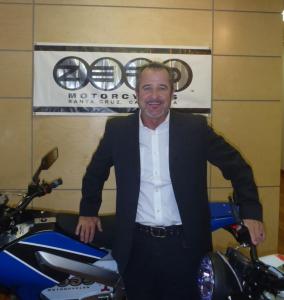














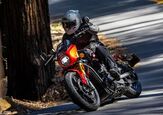
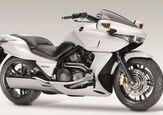
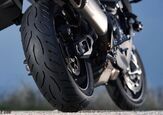
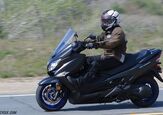
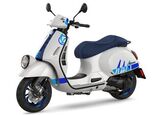

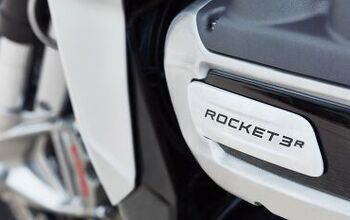
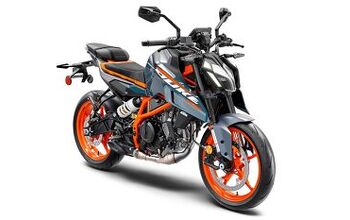
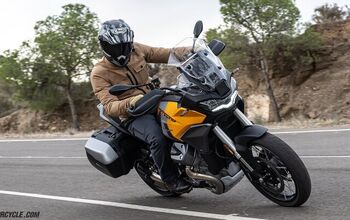
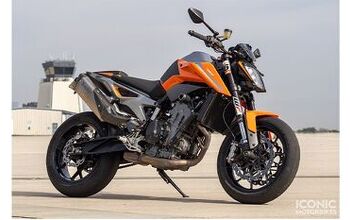
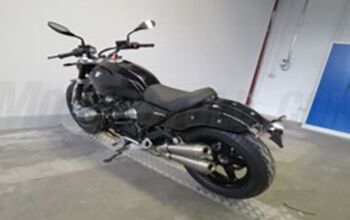
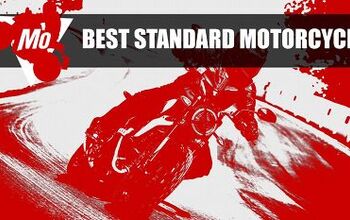
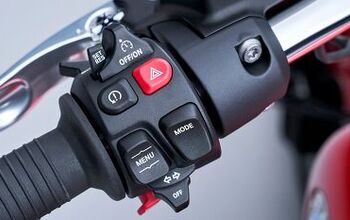
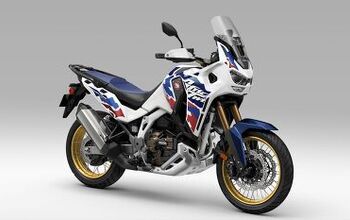
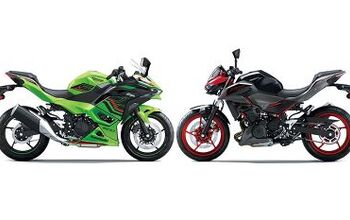
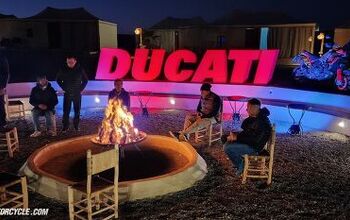
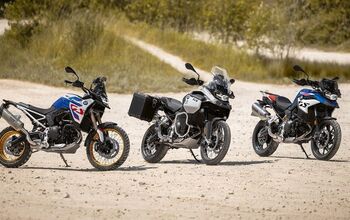
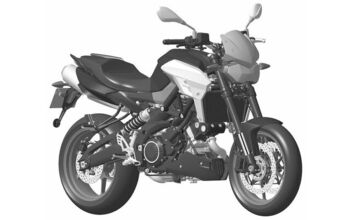
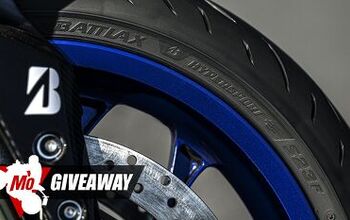
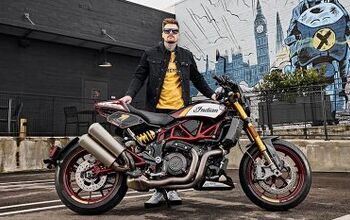


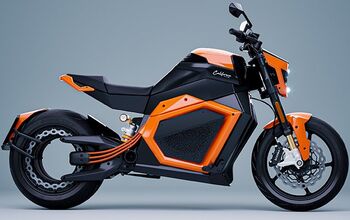
Comments
Join the conversation